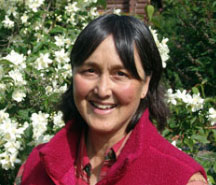The January Block often has unique courses. One course saw students cruising down Mount Alyeska on skis or snowboards. Other courses had students either building kayaks in Anchorage or rowing kayaks in the Bahamas. Past courses have take students to far-flung destinations. And one course this year had students asking, “What does Dwayne ‘The Rock’ Johnson teach us about climate change?”
That class, titled Climate Changes Goes to the Movies, explored the role of film narratives in popular culture by watching movies ranging from documentaries with noted scientists to climate fiction with cataclysmic CGI rendered storms.
“We had all types of films and talked in general terms about the values different films represented or what story it tells,” Evans said. “What do these films say about us as a culture that produces and consumes them? How do these help us come to terms with climate change? What lesson is this trying to teach?”
The course started with Al Gore’s 2006 documentary “An Inconvenient Truth” and ended with the 2017 “An Inconvenient Sequel: Truth to Power.” Evans thought bookending the class with would showcase just how far climate change understanding has come in the last decade.
Between those two documentaries, though, the class watched a different movie each day and explored contrasting themes. They watched films that pivoted from Western European views to Indigenous Native views to show how cultural backgrounds influence ideas of nature. They also watched “San Andreas,” an over-the-top dramatization of an earthquake featuring California’s notorious fault line and Dwayne “The Rock” Johnson, followed by Spike Lee’s “When the Levees Broke,” a documentary about the aftermath of Hurricane Katrina, to show two very different versions of people picking up the pieces and putting their lives back together.
With each movie, the class had various readings, discussions, and journal entries. Each student also did an individual research topic, like the effects of climate change on the salmon industry and the acidification of oceans.
The course ran for the first time two years ago. The brainchild of Evans and Dr. Beth Sullivan, the course was developed to leverage Evans’ interest in climate change and storytelling with an advantageous four hour night class slot.
“I’m not a scientists and don’t have a background in cinematography — I write academic and creative fiction and am really fascinated by the power of stories to transform people and their behavior,” Evans said. “I think films are really effective in getting to the issue at hand in a way the students were able to absorb and understand.”
That first year Evans said she had a steep learning curve. Even just two years ago, there weren’t as many films or documentaries about the subject, so finding suitable films and quality readings to accompany them proved challenging.
“We’re rapidly approaching a tipping point and it’s on people’s minds, so I think that’s why it was easier to find materials this year,” Evans said. “After Harvey and the other hurricanes, and the wildfires, and the mudslides, I think people are connecting the dots. They’re realizing it’s real and effects them.”
She also mistakenly thought all of her younger students would have been deluged with climate change science in their high school educations, so she said she tried to jump right into the meat of the matter, but found many of the students were coming to the topic fresh and were having trouble following along. This second go around (the course didn’t run last year), she opted to spend the first week covering the basics by watching documentaries that would help newbies to the subject matter wade in and would expand the knowledge of those who were more familiar.
“After this class, I feel inspired,” said student Rani Malone. “I was passionate about climate change coming into the class, but didn’t realize how many aspects of climate change there are and all the perspectives are just amazing. In a way it’s depressing because you’re like, ‘what can you do?’ But then at the end you can see that there is hope. And this new generation, they see that and it’s a prevalent issue. People are taking note and they are making changes.”

